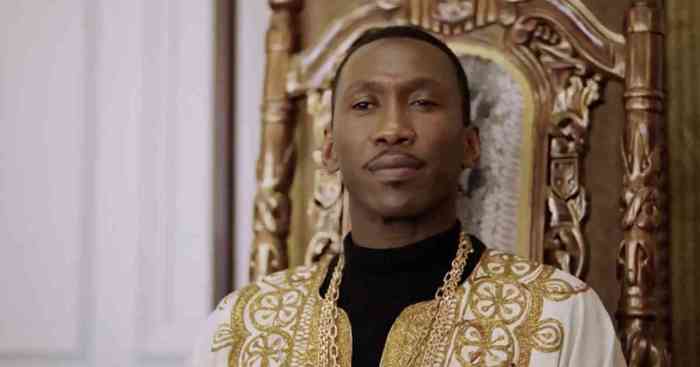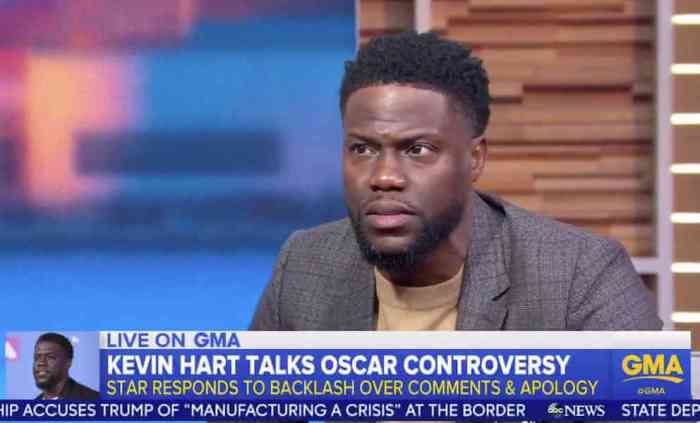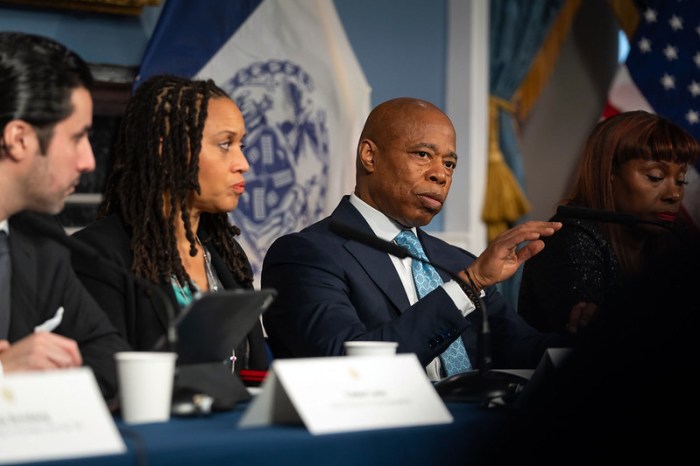BY ED SIKOV | I met Bobby Rivers in the 1980s when he was one of VH1’s first veejays. He was extremely funny and preternaturally good-natured, qualities he still retains. (I couldn’t even get him to say something mean about Charlotte Rampling.) He’s been a radio host, a Food Network host, and even turned up on “The Sopranos.” We lost touch with each other until two weeks ago, when I found him on Twitter (@BobbyRiversTV) and immediately got into tweety talk about the Oscars. We continued it in the following interview:
ED SIKOV: I have mixed feelings about the #OscarsSoWhite dispute, Bobby. Sure, it’s impossible to look at a composite photo of all the acting nominees and not notice that they’re all white. But it’s the Oscars, and the Oscars have never been about actual quality. They’re really about showing the world that Hollywood is full of noble, generous, fundamentally decent people and not the crass, money-grubbing blowhards we know them to be. Your thoughts, please.
BOBBY RIVERS: The following actors and actresses were never, ever nominated for an Oscar: Edward G. Robinson, Joel McCrea, Ida Lupino, Marilyn, Monroe, Mia Farrow, Dennis Quaid, Donald Sutherland, and Richard Gere. But Kim Basinger has an Academy Award. I understand what you mean.
Media Circus
ES: So what’s to be done about racial diversity when they couldn’t even get Edward G. Robinson or Marilyn Monroe right?
BR: Exactly. The situation with the Academy is similar to the situation with America. Just because a black president was elected didn’t mean that all inequality problems were magically poofed away. If anything they came to the surface for people to see.
The #OscarsSoWhite issue is not just about the Academy and not just about black actors. When’s the last time we saw an Asian-American actor or actress make an Oscar acceptance speech? In the Academy, there needs to be race and gender equality for editors, cinematographers, and directors. In the industry in general, we need more people of color in the studios who help green light projects, and we need them working in Hollywood and New York as agents. Black people were never seen as high-powered talent agents on “Entourage.” Black agents are so rare that Chris Rock lampooned the idea in his show biz comedy, “Top Five.” Kevin Hart played his agent.
TV newsrooms need to embrace the race and gender diversity, too. There’s an article in the Entertainment section of the Los Angeles Times called “Critics point to studios for lack of diversity among Academy Award nominees.” But how many times have you seen a black or Latino person as the film critic on a network morning show? I tried to be a movie critic when I worked on two local New York City morning shows and got resistance from executives. But I started my TV career as the weekly movie critic on the ABC affiliate in Milwaukee. I was the first black person in the city’s history to do so. The field of film critics given to us on network morning news programs and on syndicated film review shows has been predominantly white males. And TV columnists have yet to question that lack of diversity on camera. I still go to screenings and see lots of black, Latino, and Asian critics who would love TV airtime.
And when have you ever seen a black female movie critic on TV? Never. But they do exist in New York City. I know some, and I worked with them on cable’s Arise TV. Even this month’s entertainment contributors in place on network morning shows for the announcement of the Oscar nominations lacked color –– and, ironically, that’s when the #OscarsSoWhite issue came up.
The Academy will start making changes because president Cheryl Boone Isaacs is a groundbreaker. She’s been around Hollywood a long time, and she’s passionate about diversity.
ES: Yes, and in fact the Academy announced a major change in voting eligibility. If you haven’t worked in film for three decades, you can’t vote any more unless you’ve been an Oscar nominee yourself. The new rules sparked an immediate backlash, which I’m calling #WhiteOscarsMatter. Old white folks are outraged. Charlotte Rampling called the decision by some African Americans to skip the Oscars this year –– widely mischaracterized as a boycott ––“racist to white people,” a remark she swiftly claimed was “misinterpreted” after it exploded in her face on Twitter. Tab Hunter, the ‘50s blond vealcake who turned out to be gay, said, “It’s a thinly-veiled ploy to kick out older white contributors — the backbone of the industry — to make way for younger, politically-correct voters.” What do you say to that?
BR: Cheryl Boone Isaacs was the first Hollywood executive ever to invite me home for dinner. She was senior VP of publicity at Paramount in the 1980s when I had my VH1 talk show. She liked my work and graciously invited me over to her home for dinner when I was in LA taping interviews for the show. Arsenio Hall was a top late night talk show host at the time. He was also on the Paramount lot. Cheryl loved the fact that I hosted a prime time talk show too and that it was different from Arsenio’s while also booking A-list guests. She felt it was a strong racial image for Hollywood to see.
I believe that TCM host Robert Osborne once said that Cheryl’s late brother, Ashley Boone, was the first African-American to head a major Hollywood studio for an appreciable amount of time. [Ashley Boone, who was gay, died of pancreatic cancer in 1994 at the age of 55.] Osborne, if I recall correctly, cited six months when the highly-respected Boone ran 20th Century Fox during a 1970s period of executive turmoil and financial low points. Ashley was a marketing whiz whose movie career started with “West Side Story.” He was the genius who turned “The Rocky Horror Picture Show,” a Fox flop, into a top piece of pop culture. He came up with the idea of midnight screenings, a move that enabled it to find its audience and make some money. Ashley was the marketing man behind Fox’s original “Star Wars” trilogy, “Julia” starring Jane Fonda, and “The Turning Point” with Shirley MacLaine and Anne Bancroft.
Ashley and Cheryl were the first brother and sister to serve on the Academy’s Board of Governors. Now think about this: If there was a short role in a movie script for someone to play the senior VP of publicity at a top Hollywood studio, how many actors of color would be submitted by agents to audition for the role? How many black women?
ES: But what about Rampling’s “racist to white people” inanity? And don’t you think Tab Hunter, of all people, should appreciate diversity?
BR: I have a great respect for Tab Hunter. I saw the recent documentary about him, “Tab Hunter Confidential,” and loved it. And I feel his acting skills were never fully utilized by Hollywood because he was marginalized due to being gay. I’m gay. I know how those barriers feel. But I disagree if he thinks this new Academy move is a ploy to kick out older white contributors. It’s a move to keep other actors from being marginalized and limited in quality employment opportunities due to race, gender, and, I might add, sexual orientation. It’s a move to keep the art of film, the product of movies, an accurate and modern reflection of today’s world. Ask Tab Hunter how many black, Latino, Asian, or female film directors and screenwriters he worked with during his Hollywood heyday. The Academy changes are to inspire and initiate that kind of diversity in the industry.
As for Ms. Rampling, bless her heart. She’s just wrong. If she attends the Oscars, I hope she’s seated right next to Whoopi Goldberg.


































